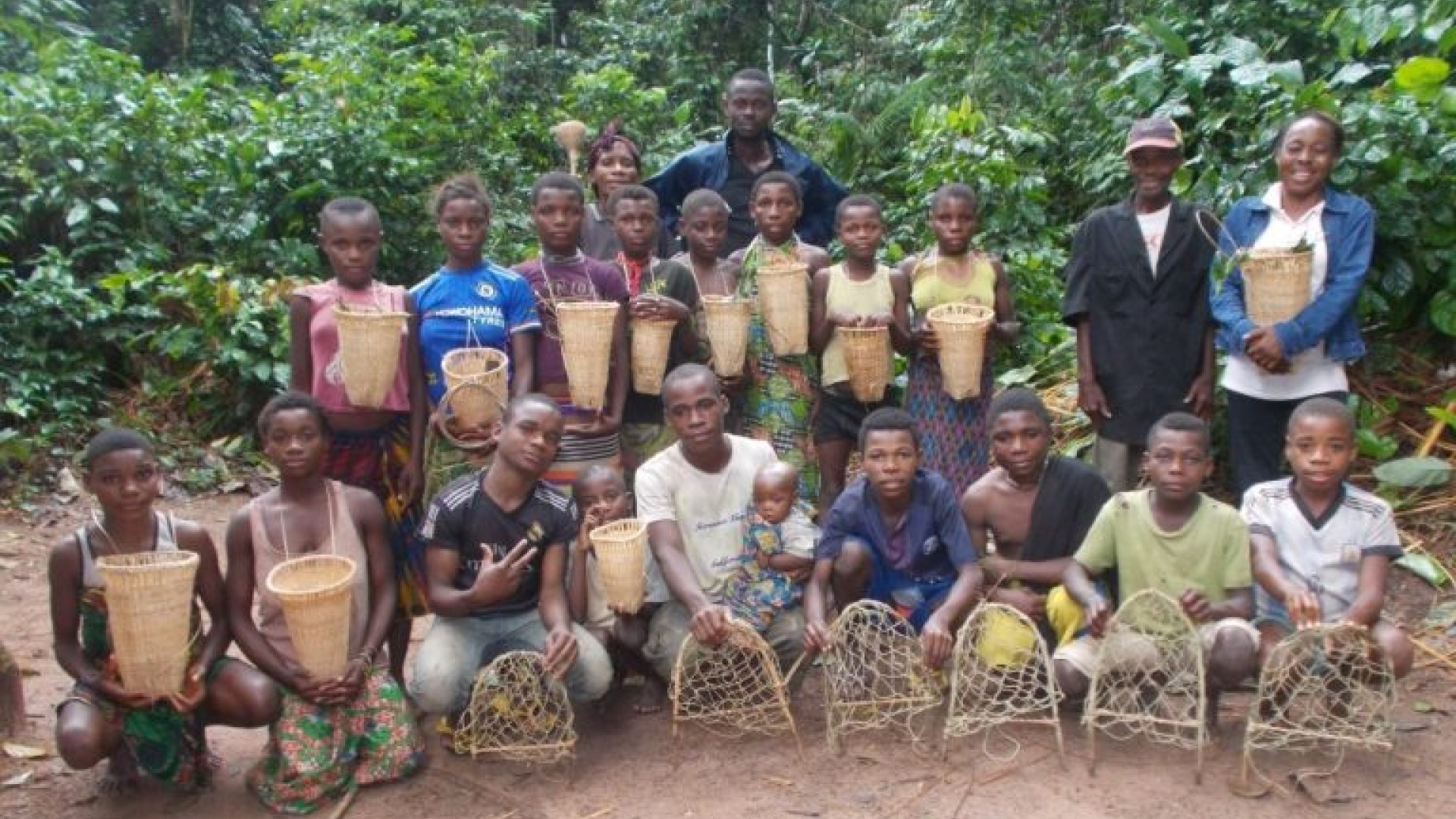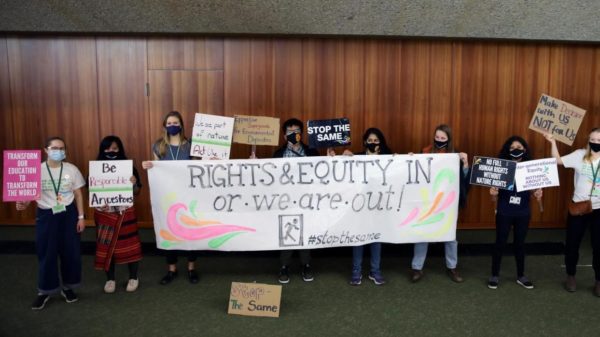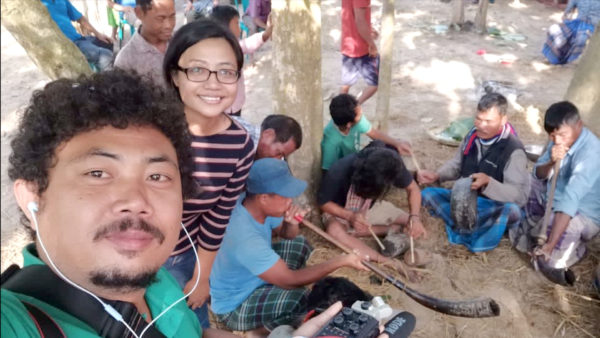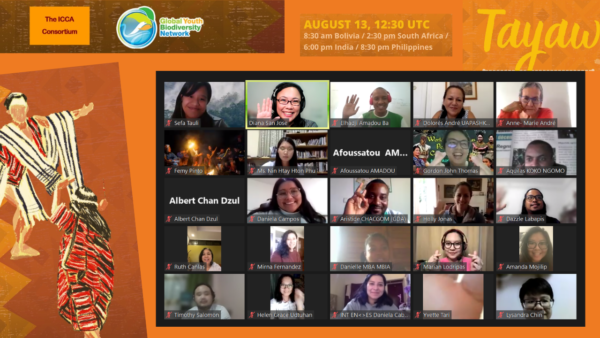Aquilas Koko Ngomo is a Policy and Advocacy Co-coordinator for Africa with the ICCA Consortium. In this interview, Mr. Ngomo talks about the role of the Indigenous youth in defending and sustaining their ancestral territories of life. He also reflects on the opportunities for collaboration across societies and generations in the movement to bring large-scale systemic changes to ensure living in harmony
First published on 09/08/2023, and last updated on 09/19/2023
Note: The article is based on an online interview with Aquilas Koko Ngomo
Interview by Mohammad Arju, Communications Coordinator, ICCA Consortium
In African countries, Indigenous youth are becoming a driving force in securing self-determination and revitalizing their ancestral territories’ Indigenous governance and management systems. There are national networks for youth to engage in such activities.
In their ancestral territories of life, the youth work closely with the elders to help strengthen self-determination and traditional management systems. In the Democratic Republic of Congo—where I am from—there are several Indigenous and traditional community–led organizations that promote youth activities at local and national levels to value and enhance Indigenous governance and management systems.
For example, ANAPAC-DRC (National Alliance for Support and Promotion of Indigenous and Community Heritage Areas in DR Congo) has significantly involved Indigenous youth in promoting self-determination and traditional practices of biodiversity conservation in Kisimbosa Chamakasa ICCA-territory of life in Walikale, among other territories of life across the country.
Beyond the national level, organizations like the ICCA Consortium and Global Youth Biodiversity Network help amplify the voices of Indigenous and traditional youth from Africa on many global forums.
As I mentioned, there are opportunities, but I want to remind us that these are insufficient. The Indigenous youth are still ignored in opportunities related to decision-making regarding the climate and ecological crises. The policymakers and conservation groups should not forget that the role of Indigenous Youth is vital in fighting against the compounding crises for the future of our planet.
The Indigenous youth must be supported and fully involved in all actions at all levels (local, national, international) by institutions and ensure that they are given sufficient technical and financial opportunities to contribute to the fight against the climate and ecological crises.
Indigenous youth also need support to access and use online platforms to showcase and celebrate Indigenous cultures, languages, and knowledge systems to a broader audience and highlight injustices happening to their communities. For many African youth, going online is a viable and effective way to promote Indigenous cultures, languages, and knowledge systems. The accessibility to the internet in our territories should be improved, and relevant capacities or know-how of Indigenous youth to use online platforms must be strengthened.
Another important aspect related to the digital skills of Indigenous youth is that such online tools and platforms help sustain and expand intergenerational learning. Social and cultural identity and intergenerational relations are important to Indigenous youth and broader Indigenous societies.
There are many challenges in intergenerational relationships and learning from the elders about the Indigenous Peoples’ cultures, values, and cosmovision. Some of these challenges can be addressed through digital expanding connectivity in Indigenous societies.
However, challenges in an intergenerational relationship and learning certainly go far beyond the limitations arising from a lack of internet connectivity and digital skills. This changing world has disrupted social life standards, cultural norms, and identity in Indigenous and non-Indigenous societies today. Reconstructing the broken traditional values is now a challenge for the elders to reshape the youth’s intergenerational relationships. The Indigenous youth is also challenged by the difficulty of adapting to the imported change against their internal social and cultural values within their communities.
However, despite our differences, the movement to bring large-scale systemic changes to ensure living in harmony with nature is common for all of humanity. It is not only an Indigenous issue.
Many of us—Indigenous youth activists and leaders in Africa—consider ourselves as the future custodians of the planet. We think we, the Indigenous youth, can do a lot about mobilizing dialogues between Indigenous Peoples and non-Indigenous Peoples so that future relationships will be positive for many generations. Dialogues on issues of common interest are a key to achieving this.
Let’s give more emphasis to dialogues across generations and societies. There are issues that Indigenous and non-Indigenous youth both share in common. We all experience the climate and ecological crisis in various ways; we are all affected differently. For example, no one is spared by the effects of climate change on humanity, whether you are an Indigenous person or not. Therefore, there is a need to collaborate, work together, and dialogue to fight against such crisis and work towards a reality where all live in harmony with nature.
About Aquilas Koko Ngomo
Aquilas Koko Ngomo collaborates with the ICCA Consortium as International Policy – Africa Regional Focal Point and interpreter and translator (French <> English). He holds a Bachelor’s degree in English and African Culture. He works as a Communications Officer for the Alliance Nationale d’Appui et de Promotion des Aires et Territoires du Patrimoine Autochtone et Communautaire en RDC (ANAPAC-RDC), a non-governmental organization that defends the rights of Indigenous Pygmy Peoples in the DRC and a Member of the ICCA Consortium. He also works as a Consultant interpreter and translator (French-English-Swahili) with Indigenous Peoples Rights International (IPRI), an international Indigenous rights non-governmental organization based in the Philippines. In addition, Aquilas teaches as an assistant in the Department of English and African Culture at the Higher Pedagogical Institute of Bukavu (ISP-Bukavu) in the Democratic Republic of Congo.



